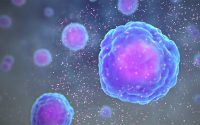Effectiveness of Traditional Chinese Medicine Massage Therapy in Treating Chronic Fatigue Syndrome
Chronic Fatigue Syndrome (CFS) is characterized by persistent and unexplained fatigue accompanied by various symptoms such as joint pain, fever, and cognitive issues, yet often shows no abnormalities in physical examinations. Globally, the prevalence of CFS varies, with about 0.1% to 2.2% in the general population, and specific surveys noting higher rates, such as 12.54% in China.
In China, massage therapy, rooted in traditional Chinese medicine, is extensively utilized for CFS treatment. A study published in the journal; Medicine aims to systematically assess the effects and safety of massage therapy on patients with Chronic Fatigue Syndrome (CFS), providing insights for clinical practice. The research involved a thorough literature review, selecting quality randomized controlled trials. The meta-analysis included 32 trials with 2594 CFS patients from China.
The meta-analysis results indicated significant improvements in fatigue symptoms among the treatment group compared to controls. The overall fatigue score, physical fatigue, and mental fatigue scores all showed notable decreases. Additionally, the effective rate of massage therapy was significantly higher in the treatment group, with minimal adverse reactions reported, limited to local swelling, skin bruising, and nausea in only one study.
Traditional Chinese Medicine (TCM) attributes the causes of CFS to emotional impacts on the liver, dietary impacts on the spleen and stomach, and impacts on the heart, each affecting different bodily functions and manifesting as specific symptoms like mental depression, indigestion, and insomnia. The treatment in TCM focuses on tonifying the organs, enhancing immunity, and improving nutritional supply through specific acupoints tailored to the patient’s symptoms.
The study reviewed uses the FS-14 fatigue scale, to measure fatigue severity. It includes 14 items divided into mental and physical fatigue, with higher scores indicating more severe fatigue. The analysis showed that the massage treatment group had significantly lower scores on the FS-14 scale, indicating effective relief from both physical and mental fatigue aspects of CFS.
In conclusion, while the therapeutic benefits of massage for CFS are promising according to the preliminary results, the study calls for more structured and comprehensive research to better understand the effectiveness and to standardize this treatment approach, alongside exploring its underlying medical mechanisms.

